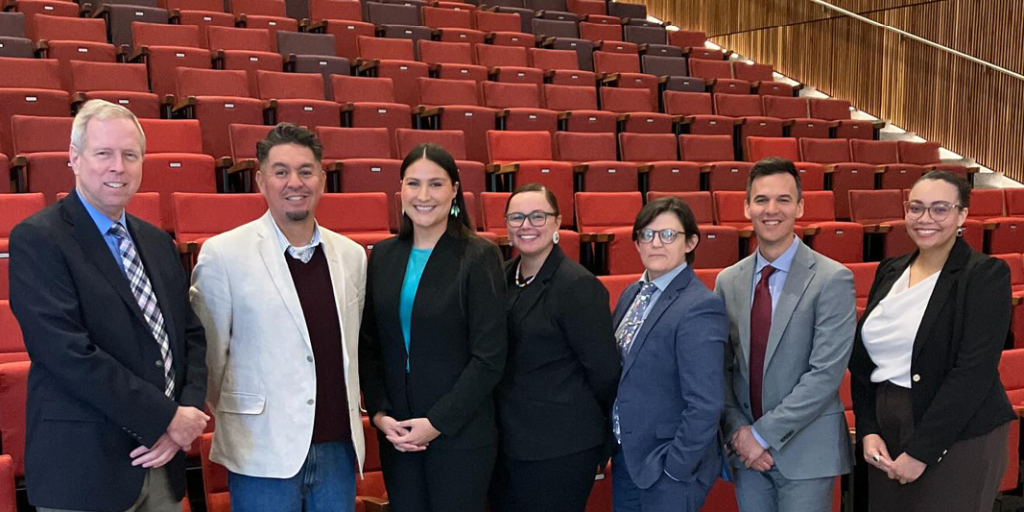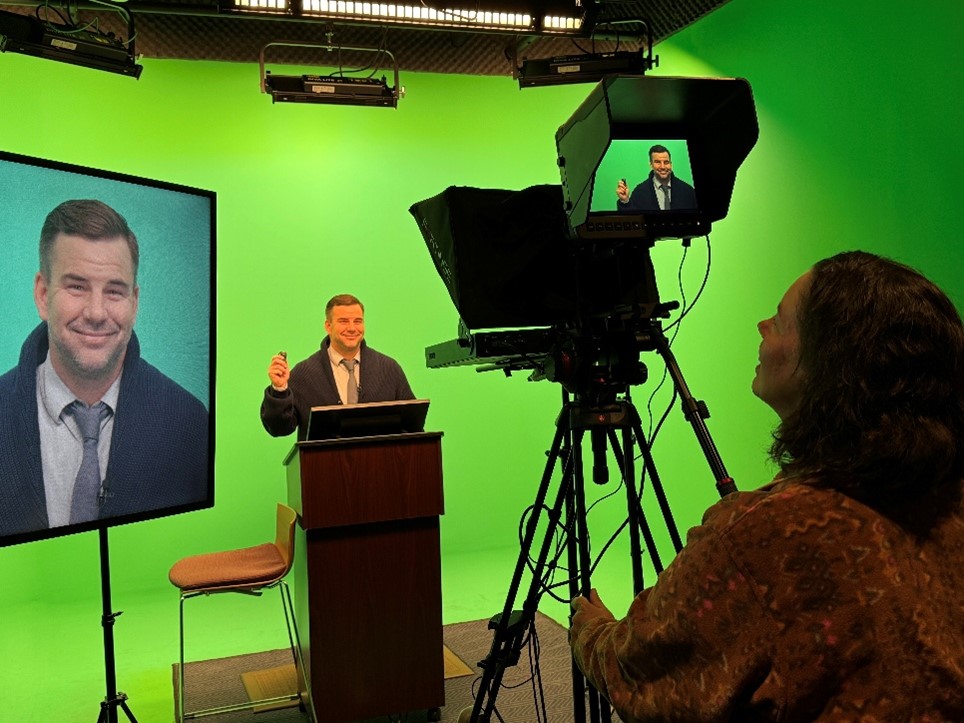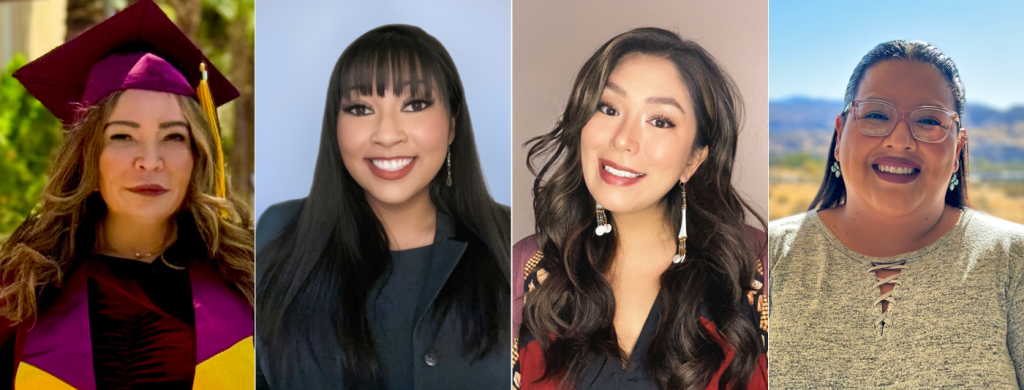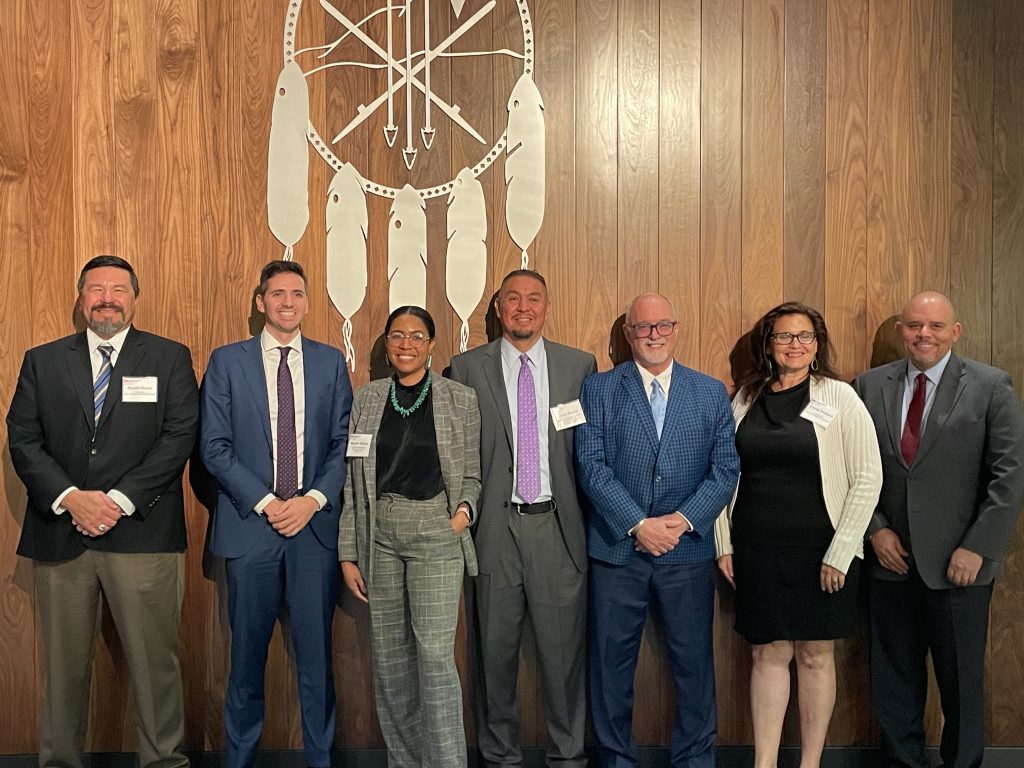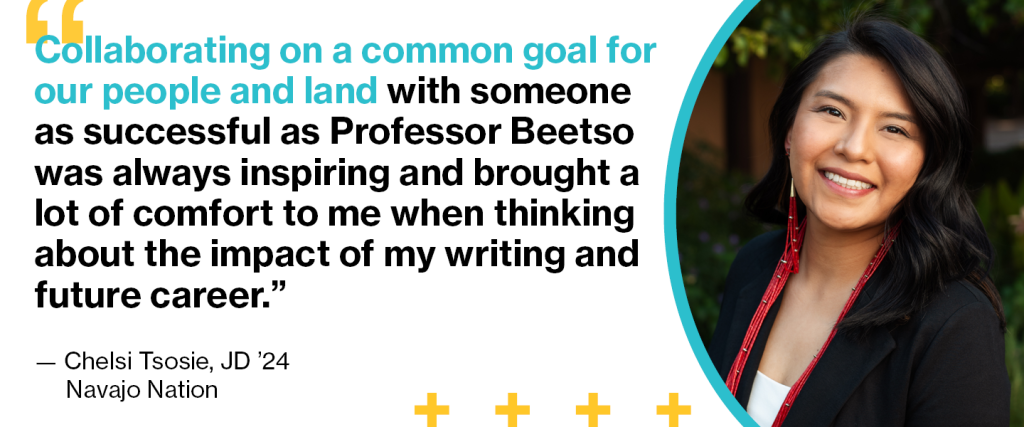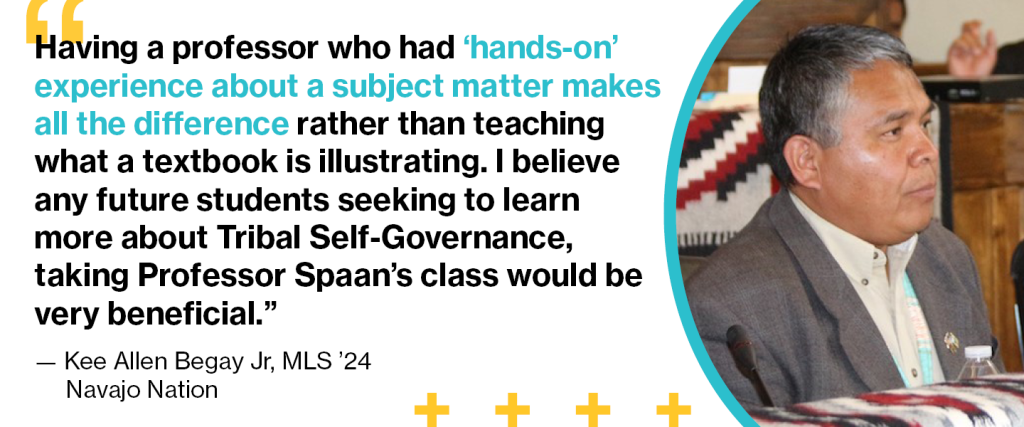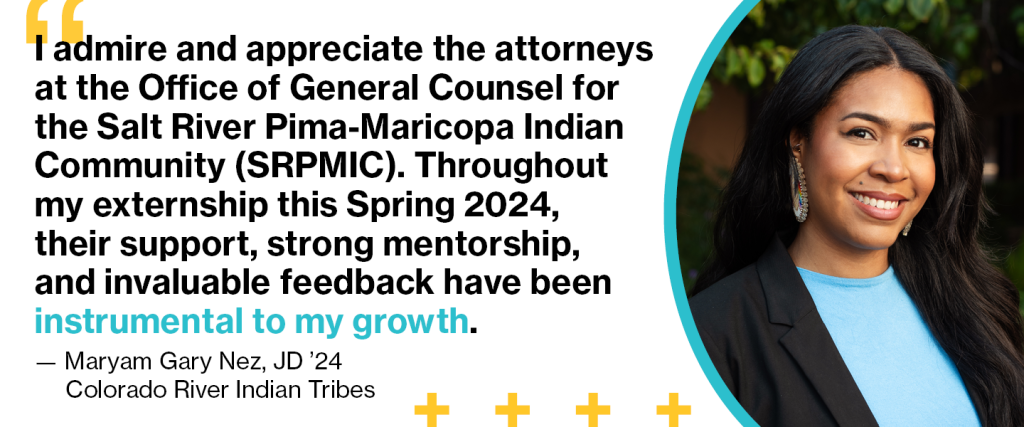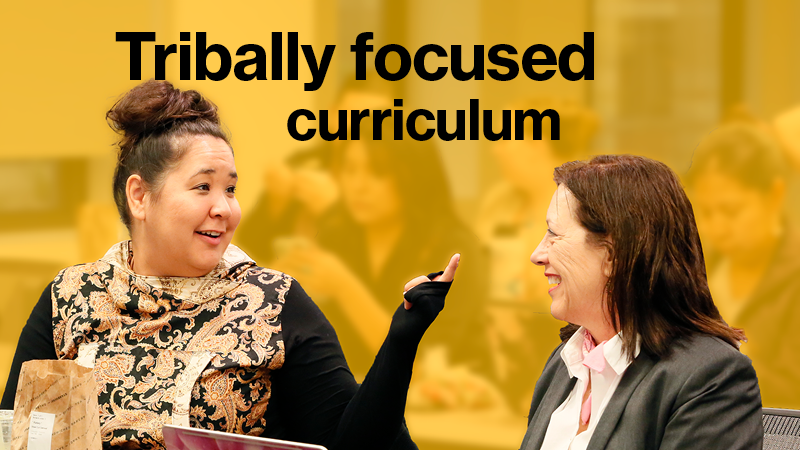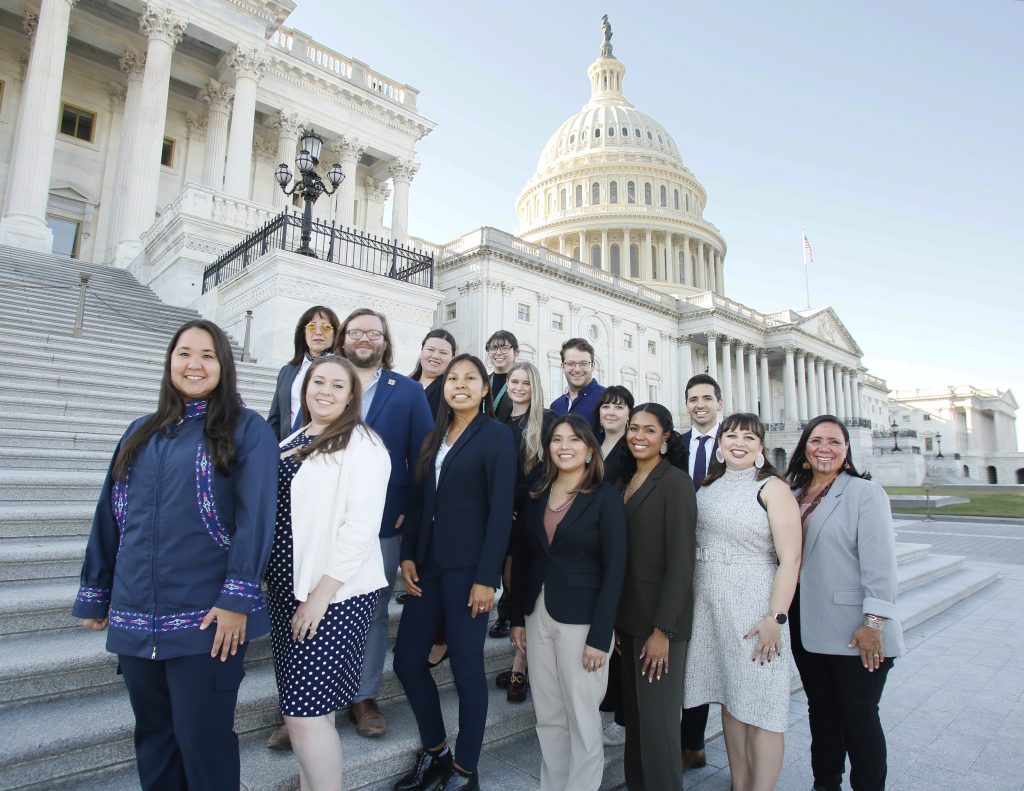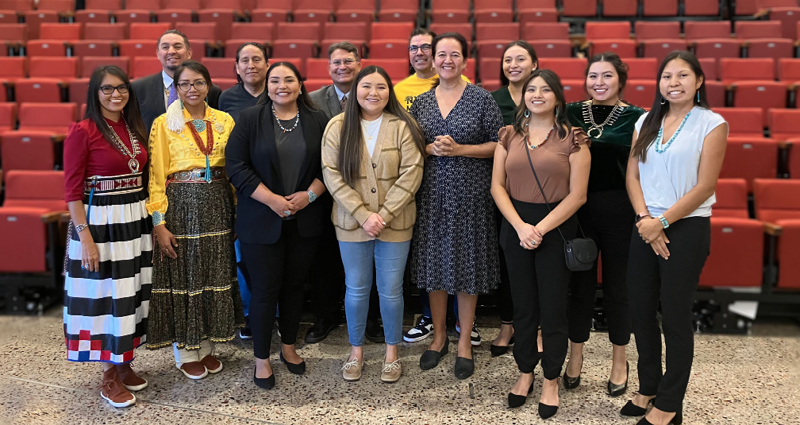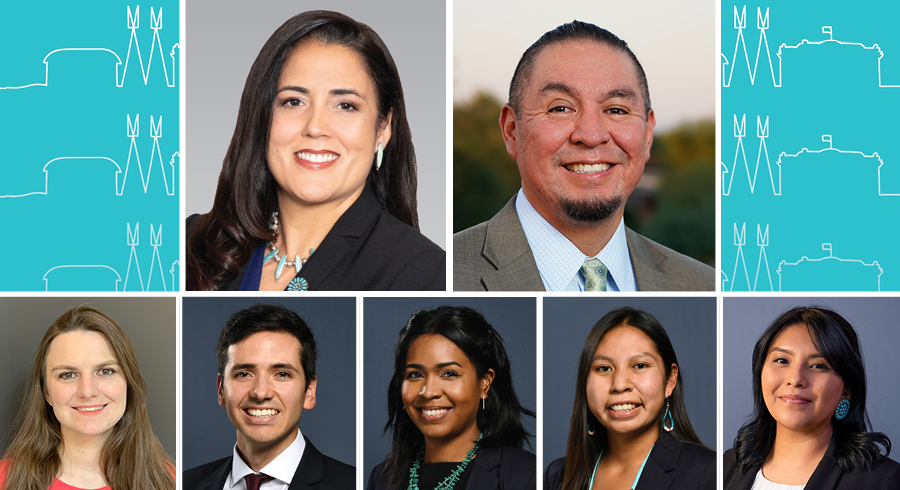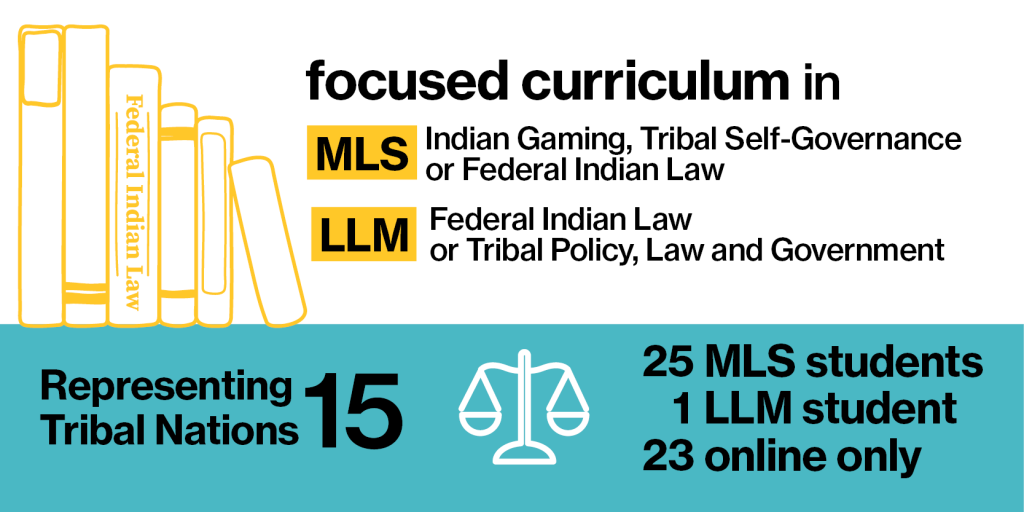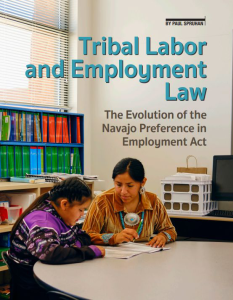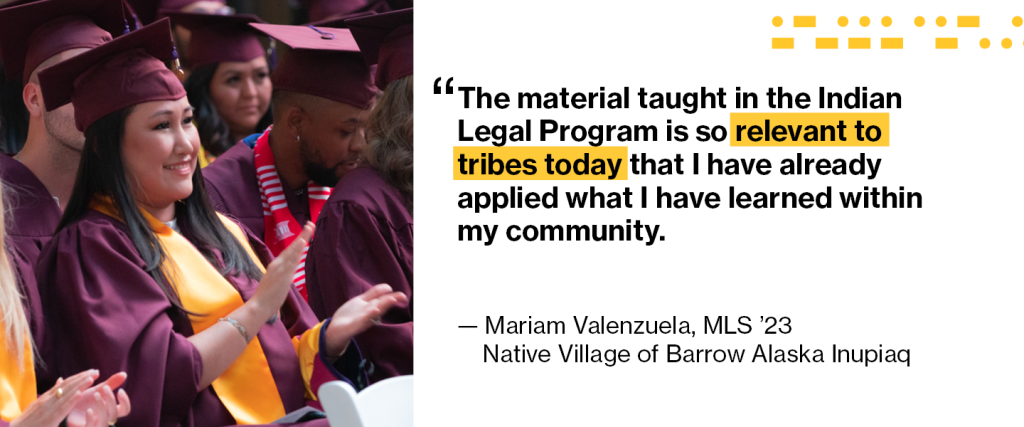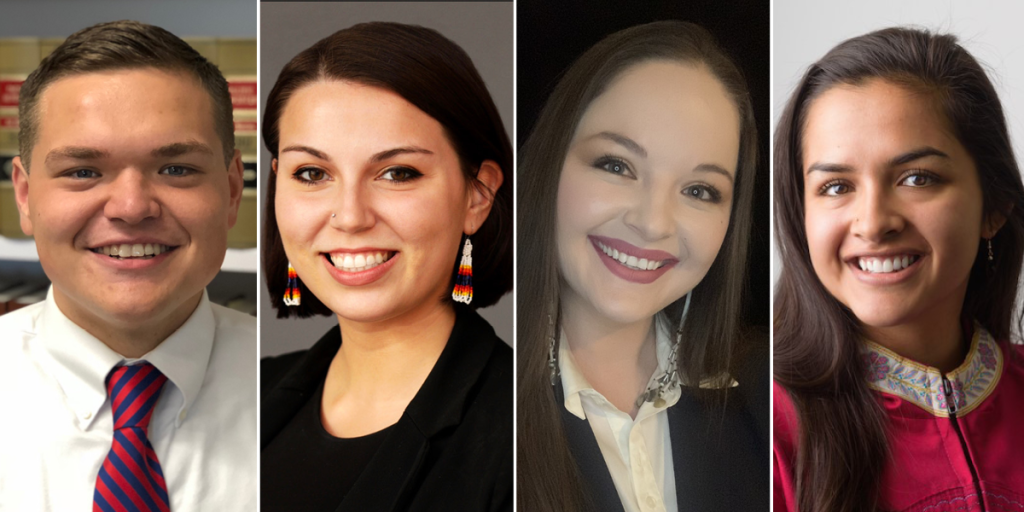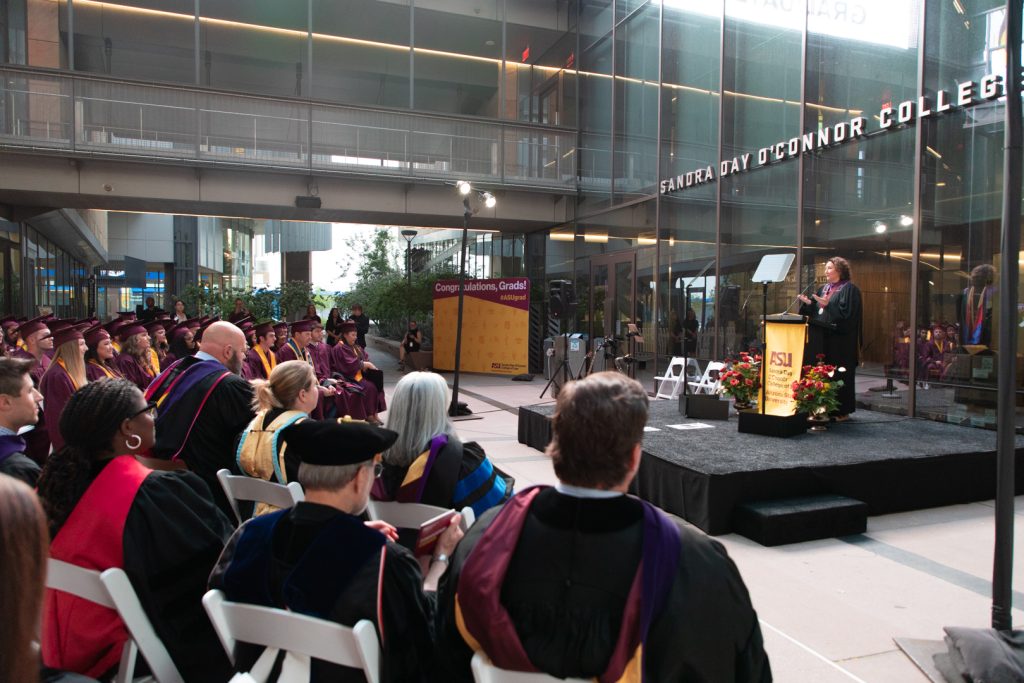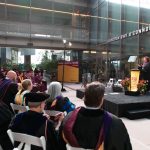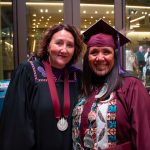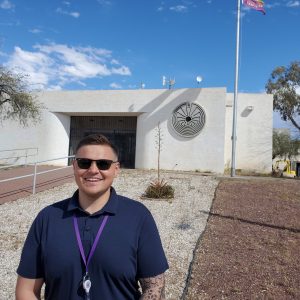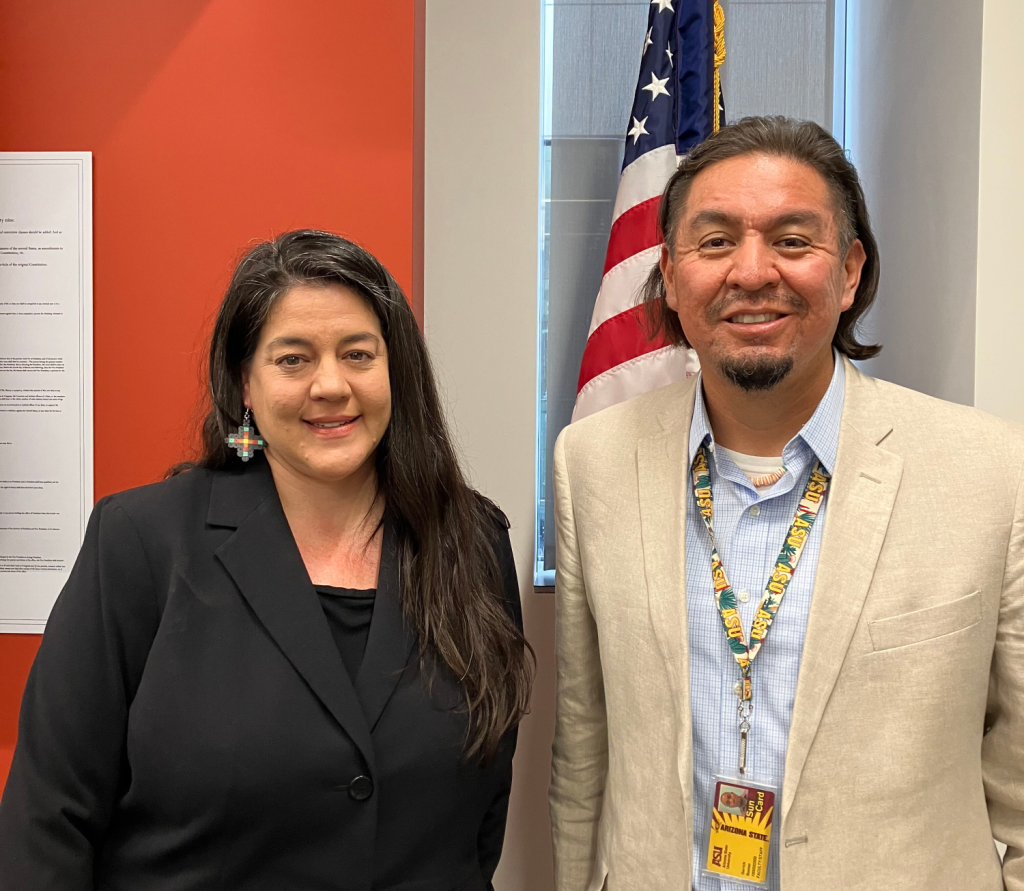“Professor Spaan went deeper into the content of the policy and had us review and research the policy, and how tribes are benefiting by providing services to their community,” said Kee Allen Begay Jr. (MLS ’24). “Having a professor who had ‘hands-on’ experience about a subject matter makes all the difference rather than teaching what a textbook is illustrating. I believe any future students seeking to learn more about Tribal Self-Governance, taking Professor Spaan class would be very beneficial.”
Beetso was joined by Francisco Olea (’22) and Jeannie Hovland, Vice-Chair, National Indian Gaming Commission to present on the topic, “What’s New with Gaming? Self-Regulation and Other Hot Topics.”
Beetso also presented with Beaulieu and Joey Dormady, assistant dean, Graduate Programs and New Education Initiatives about the Master of Legal Studies options available at ASU Law, including: Federal Indian Law, Tribal Self-Governance, Indian Gaming and Master of Human Resources and Employment Law. Participants explored multiple work scenarios related to Tribal Self-Governance where it would be helpful to have a greater understanding of the law.
Jennifer Boehm, a Master of Legal Studies student with a focus in Tribal Self-Governance, moderated the panel, “Self-Governance Basics at the Department of Transportation,” which featured Arlando Teller, Assistant Secretary for Tribal Affairs, Department of Transportation; Milo Booth, Tribal Affairs Director, Department of Transportation; and Eldridge Onco, Senior Tribal Affairs Advisor, Department of Transportation
We are proud of the 14 MLS students who graduated during the 2023-2024 academic year, specializing in Indian Gaming, Federal Indian Law, and Tribal Self-Governance. Congratulations to this year’s MLS graduates!
Kee Allen Begay, Jr, Navajo
Randy Bouchard, Cowlitz
Tracy Edwards
Elise-Alexandria Green
Ana Hernandez
Charles LaRoche, Lower Brule Sioux
Delban Leslie
Keely Marquez, Serrano
Rileyann Nallin
Jaylyn Parrent, Salish and Kootenai
Faron Scissons, Rosebud Sioux
Ashlee Swain Rios, Pomo
Maotheeker (Wealthy) Vue
Elizabeth Zingg, Ho-Chunk Nation
Twenty-six students are currently enrolled in these MLS programs. With the support of the San Manuel Band of Mission Indians, the ASU Law’s Indian Gaming and Tribal Self Governance programs were able to support externship experiences for six ILP students. Kaleb Lester (3L) and Maryam Gary Nez (3L) worked at Salt River’s Prosecutor’s Office, Sophie Staires (3L) worked in the Department of Justice’s Environment and Natural Resources Division, and Elizabeth Zingg (MLS ’24) externed at for the Self-Governance Communication and Education Tribal Consortium. Sam Phillips (2L) and Colten Fredericks (2L) are working this summer at the Office of Indian Gaming in Washington, D.C.
